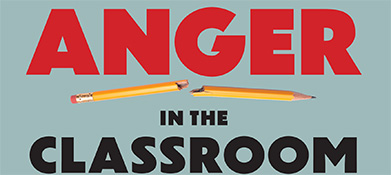 Each Friday we (I and my co-teachers at a small private high-school) took our students out on nature-focused activities, ranging from mountain hikes to developing wilderness skills like making fire and moving with stealth. Students and teachers got to savor new experiences and step into novel interactions with one another.
Each Friday we (I and my co-teachers at a small private high-school) took our students out on nature-focused activities, ranging from mountain hikes to developing wilderness skills like making fire and moving with stealth. Students and teachers got to savor new experiences and step into novel interactions with one another.
It was a fine Fall day when we headed out for a hike that would take us along forested paths and sheer drop-offs of one-hundred-foot rock faces. There would also be an academic component to the day’s adventure involving pad and pencil and centered around sharpening observation skills.
As we reached a clearing at the top of the ridge forty-five minutes later, it was time to take out writing tools.
“Oh I forgot mine”, said Gregory. Now I was faced with a choice. I knew that Gregory heard more than 1 of the 3 reminders I gave regarding the materials needed. I knew that he idolized his older sister, as well as the trouble she caused as she went through this same school. I knew that he was smart and observant and not as innocent as he appeared.
Choices scrolled down in front of me like a fine restaurant menu. [Having been in the position of not knowing how to proceed in situations that needed a quick response and at other times making choices I later regretted, I realized I needed better options. I then practiced the ability to instantly have a selection of possible actions present themselves at any given moment – More on this later]
1 Ignore the whole situation and pretend it was nothing
(featuring ostrich-burger sans bun)
2 Say “We will deal with this later” and have materials loaned to him
(offering a gelatin dollop with cold chiffon topping)
3 Raise my voice and let anger flow
(with baby potatoes smothered in thick Shitake mushroom gravy)
4 Cooly send him back to the parking lot and end his outing right there
(with a delicate deviled-egg puree’)
5 Engage in a quiet, reasonable conversation about the effects of his actions
(with a side of braised kale and sesame)
I looked directly at him, holding his gaze as I made my choice. I quickly discarded unwanted choices (this is called decide – where the meaning of “-cide” makes its presence – “to kill” – as in homicide, pesticide… In decide we kill the alternative choices and end with one option standing)
*After repeated occurrences of this passive-aggressive behavior option 1 was not reasonable.
*Choice 2 was a good possibility – but didn’t carry the strength I wanted for this situation now, and would likely need to include too strong a response later – to be effective
*Sending him back to the van would mean sending away one of three teachers as well – not a good choice. And I did want him to be part of the activities – so choice 4 was out.
*Option 5 is always important to consider and can be quite fruitful – but I felt in this case it would give too much support to Gregory’s current behavior (and could actually encourage more of the same)
*Only option 3 remained on the list, and I chose it. I raised my voice and firmly lambasted this young gentleman, pointing out how he was affecting his neighbors, coloring the learning environment, and selfishly acting on his own behalf. He listened. The entire class listened. Gregory realized that this was not a time for discussion, or any talking at all. He waited for the blast to pass.
When finished, I asked that materials be loaned to him and we went on with our activity. Students were very attentive to their work this day, and results were impressive. What could have been a divisive moment appeared in some ways to be a unifying one. It was a strong experience that the students had just shared. Individual focus turned toward the group – and the group moved forward.
I did not choose option 3 out of anger (though it would have been easy to let the sparks of anger turn into flames). I thought it would be best for Gregory. Option 3 allowed him to remain on the hike, a member of the group, and it gave an immediate response to his actions. I felt it would be best for the class – to see consequences clearly and cleanly delivered. I felt it would not undermine my authority, and it would not interfere with students experiencing and accepting my compassion (they knew it would always be there). The determinations listed above comprise a handful of important considerations when faced with a pivotal moment such as this. There are many pivotal moments in the day of a teacher – from small to large. Yet each will carry some significance regarding classroom tone and learning environment.
We went on, after that, to hike and explore. When we all walked away from the clearing I said to a co-teacher,
“I hate to bring that kind of energy into the woods, but it seemed important here” (There was very little residue left from this event on my part, nothing sticking to me). “Let’s let it fall behind us”.
This Fridays-only co-teacher, said, “I defer to your judgement here” and we went on to have a fine hike – exploring the depths of new caves that were found and, as it turned out, personal depths as well.
Inherent dangers of choosing anger:
-It’s really an excuse for the teacher to let it rip – when the teacher enjoys or can’t resist engaging in angry behavior
-to use anger thinking I am remaining unaffected, when I am not. I am fooling myself. I am actually feeling anger and expressing anger – (Anger might never become a viable option for me to work with)
-this is what the student wants from me – I am being manipulated
-this might be interpreted as weakness by others – as lack of control
-this might actually be a weakness (as in the first of this list) and I am not in control, or I become agitated and unsteady
-I lose or damage a connection to this student (it is essential that the student does not feel betrayed by me reigning down misplaced discipline or blame – or that I no longer care for him or his well-being)
Another danger of an action like this is that the release of anger can leave some very bad energy in the air (and in me) and place blinders on me as well. Then my choices are no longer clear and decisions are muddled. For me as a teacher there is one way only to make this workable – I must not express anger when caught in the grips of anger. If I can’t do this then the anger is guiding me rather than me guiding the anger.
